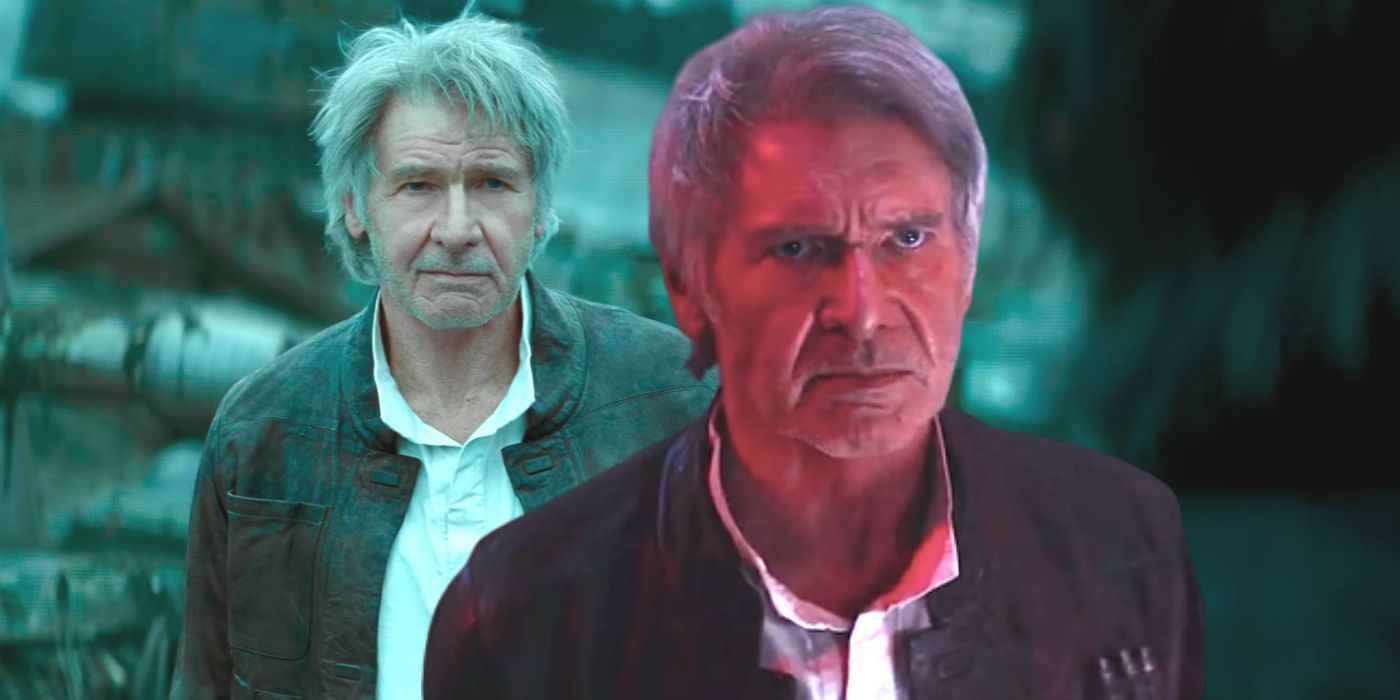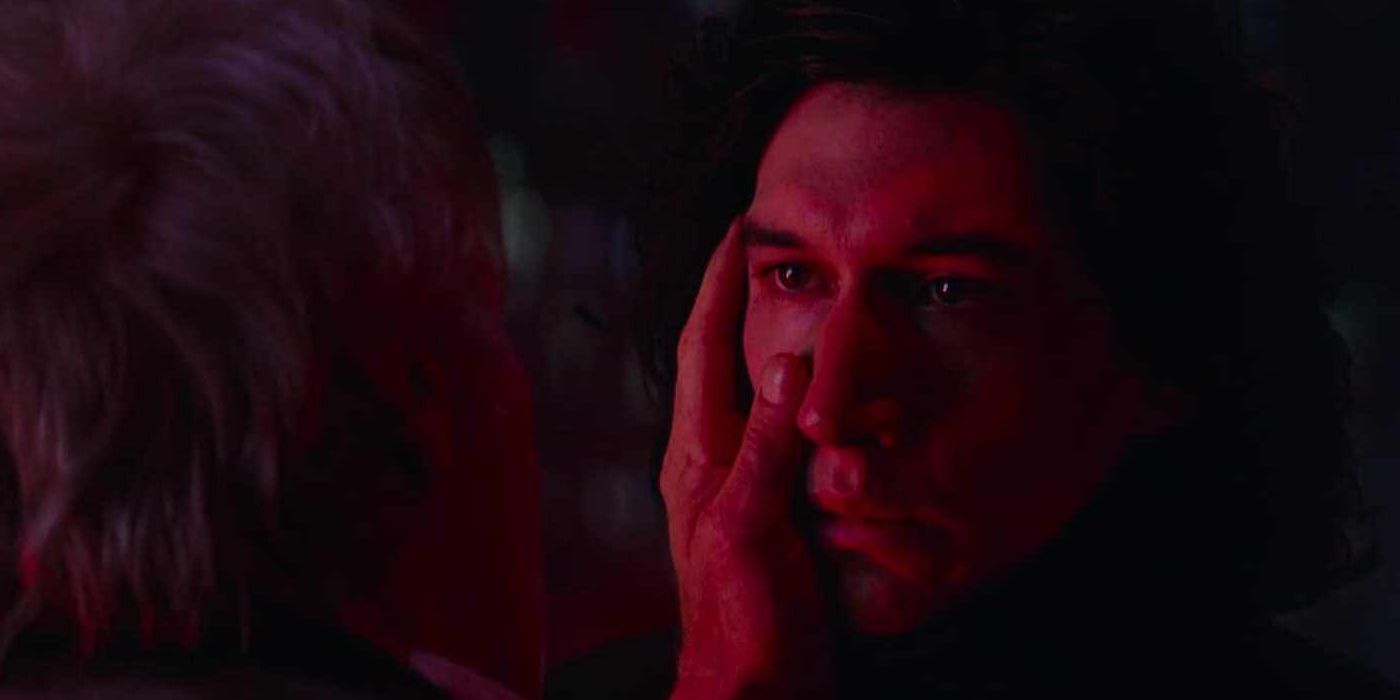Kylo Ren's (Adam Driver) surprise conversation with Han Solo (Harrison Ford) in Star Wars: The Rise of Skywalker was simply a retread of their final dialogue in Star Wars: The Force Awakens, why? After playing the primary villain for the most part of the sequel trilogy, Han Solo and Leia Organa's (Carrie Fisher) son shed his sinister persona and began his redemption arc. His return to the light side was motivated by a few things, including a vision of his father shortly after his mother died as she tried to reach out to him one last time.
The father and son conversation sounded so familiar for Star Wars fans as it was almost a beat-by-beat recreation of their last one in The Force Awakens - only with different endings. Then, Han tried to bring his son back home just as Leia asked him to do, earnestly appealing to the disillusioned Kylo Ren, insisting that his son - Ben Solo - was alive. It's the same sentiment he reiterated in The Rise of Skywalker, only this time, it successfully redeemed Kylo Ren, convincing him to turn his back on the dark side and help his mother's cause by defeating Emperor Palpatine (Ian McDiarmid). As for Kylo Ren, he echoed his doubts about having the strength to do the things he needed to, and just like the first time, Han was supportive him - motivating him that he can do whatever he wills.
Recreating the conversation between Han Solo and Kylo Ren from The Force Awakens in The Rise of Skywalker was an intentional creative choice by director J.J. Abrams, who co-wrote the 2019 movie's script with Chris Terrio. Star Wars has established that death doesn't mean the end of certain characters. Unlike the Jedi, who are able to come back via becoming Force Ghosts or in other cases like Palpatine who was resurrected, however, Han's return was something else entirely. Han's appearance in The Rise of Skywalker came from Kylo Ren's memory. It's a vision of his father as he relived their last conversation before his death in Starkiller base. As he began his redemption, he looked back at that turning point and imagined himself making the right decision by giving in the urge to come home to his parents.
In The Force Awakens, Kylo Ren was already conflicted about his allegiance to the dark side but was motivated by revenge on everybody he thought wronged him. He was convinced that killing his own dad would rid him of his personal insecurities, so even though he didn't really want to do it, he still murdered him. The imaginary conversation between the pair revealed that despite his feigned repulsion towards his father, Kylo Ren always knew deep down that if he wanted to come home, Han would've always welcomed him back. Unfortunately, the pent-up anger towards what happened between him and Luke, coupled with his childish ego that fueled his irrational desire to finish what Darth Vader started clouded his judgement. It's the reason why he was easily manipulated by Palpatpine via Snoke, he projected himself as a strong leader, but in reality, he was nothing more than a badly disappointed kid who happened to be strong with the Force.
Aside from linking Kylo Ren's redemption to his first true villainous act, the appearance of Han in Star Wars: The Rise of Skywalker was also the filmmakers' way of manufacturing consent with regard to forgiving the character. Many fans argued against his vindication cited his ruthless murder of one of the most beloved Star Wars character in Star Wars: The Force Awakens. somehow, it's a more serious offense than Anakin Skywalker (Hayden Christensen) killing a string of innocent Younglings. Unfortunately, viewers didn't really get much time to spend with Ben Solo as he eventually died at the end of the movie, sacrificing his own life to ensure Rey's (Daisy Ridley) survival.


